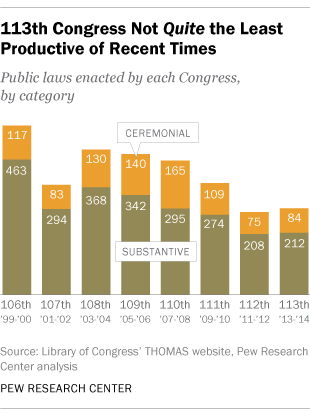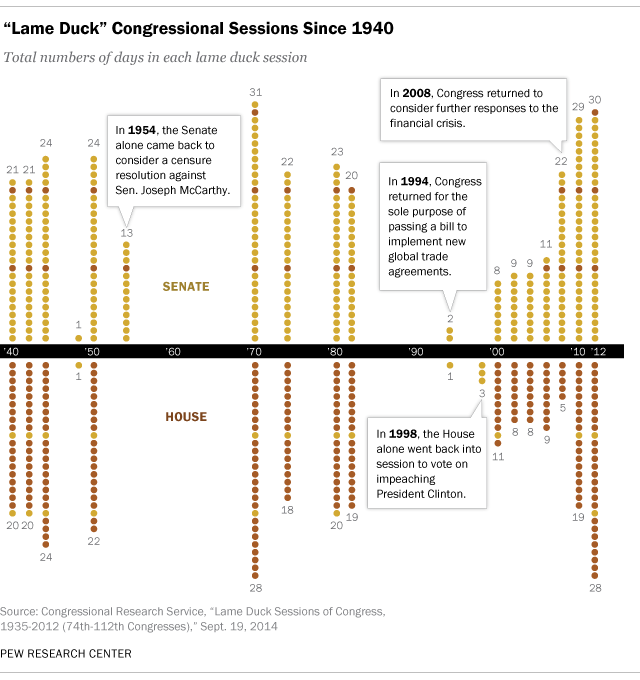Turns Out the 113th Congress Wasn’t the ‘Least Productive’
Melissa Quinn /
The 113th Congress earned the nickname of the “do-nothing Congress.” But how does the most recent crop of lawmakers on Capitol Hill compare in productivity to its predecessors?
A review of the number of public bills passed by Congress since 1947 conducted by the Pew Research Center found that the 113th Congress is not, in fact, the “least productive.”
Instead, the crop of lawmakers in the legislature from 2013 to 2014 takes the No. 2 spot among the least-productive Congress’.
At the end of the session, which wrapped up before Christmas, the 113th Congress enacted 296 laws, of which 212 were deemed “substantive” by the Pew Research Center. The organization considers any law besides “building renamings, commemorative-coin issuances and other purely ceremonial” as significant.
The 113th Congress became the second ‘least productive’ in modern history, passing 296 laws.
By comparison, the 112th Congress, which earns the title as the “least productive,” passed 283 laws. A total of 208 of those were considered “substantive.”
In contrast to the 112th and 113th Congresses, the 84th Congress, which served from 1955 to 1956, passed the most bills at 1,028.
Before members returned to their home districts before the Nov. 4 midterm elections, lawmakers had passed 185 bills.
>>> Commentary: Lame Duck: A Slush Fund for Special Interests and Cronyism
However, after returning for the lame-duck session, legislators passed 111 laws, including the $1.1 trillion CRomnibus government spending bill, a tax extenders package for expired tax breaks and the 2015 National Defense Authorization Act.
According to Pew, a growing number of bills are being passed during lame-duck sessions.
Those passed during November and December this year account for 37.5 percent of the total measures passed by the 113th Congress. During the last lame-duck session in 2012, 87 laws were passed, totaling 30.7 percent of the 112th Congress’ total legislative output.
During the previous lame-duck session in 2010, 99 laws were passed, making up 25.8 percent of the 111th Congress’ total bills passed.


